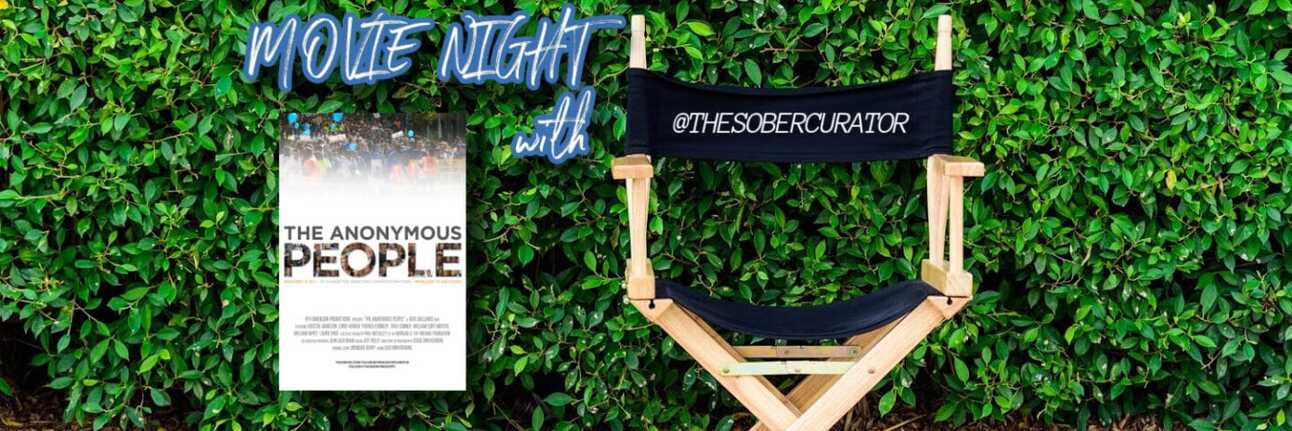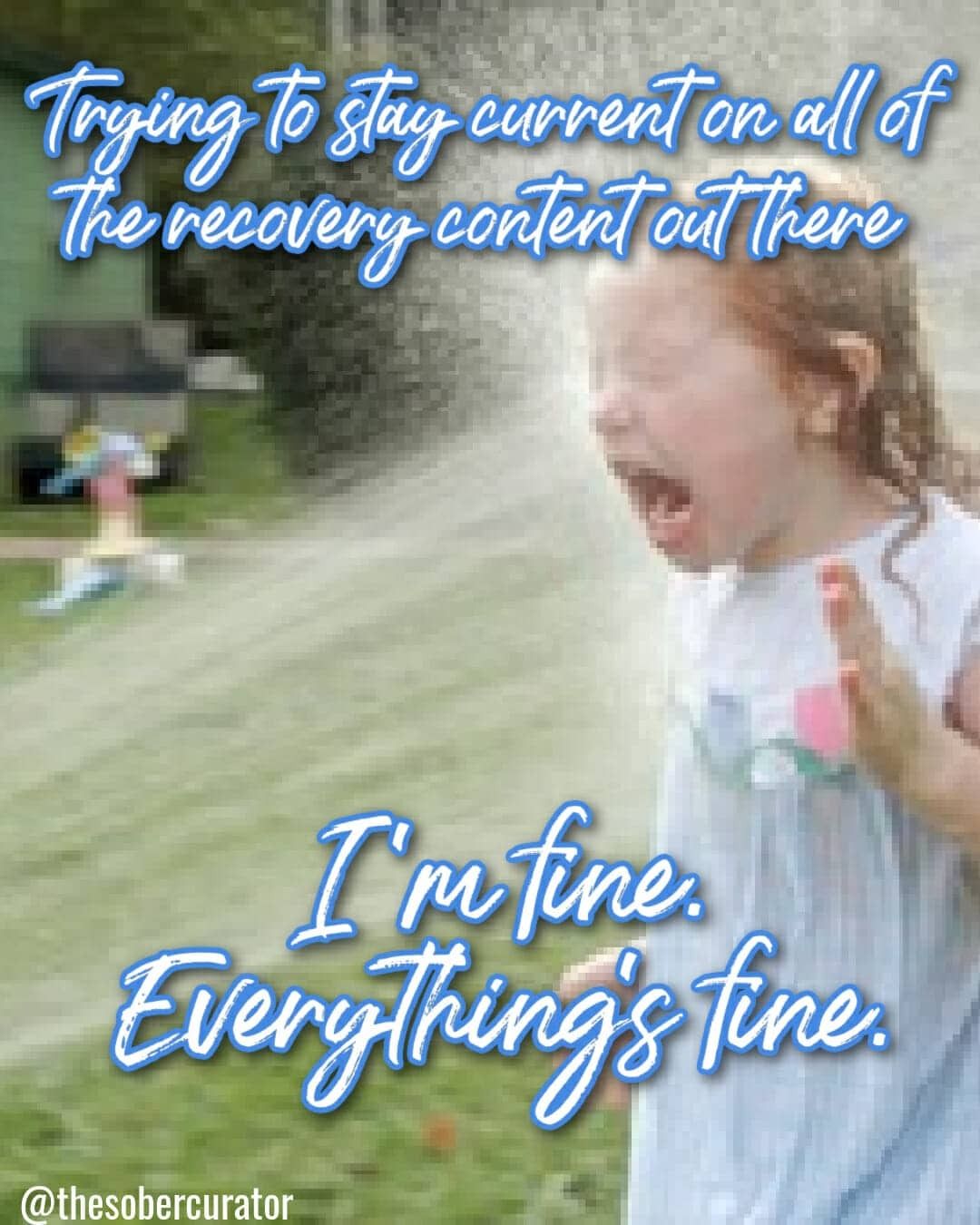- The Sober Sip powered by The Sober Curator
- Posts
- The Anonymous People, An Independent Feature Documentary About The Over 23 Million Americans Living In Long-Term Recovery From Alcohol & Other Drug Addictions
The Anonymous People, An Independent Feature Documentary About The Over 23 Million Americans Living In Long-Term Recovery From Alcohol & Other Drug Addictions

The Anonymous People is an independent feature documentary about the over 23 million Americans living in long-term recovery from alcohol and other drug addictions. Read that again. At the time this documentary was published in 2014, it was estimated there were over 23 million Americans living in long-term recovery from alcohol and other drug addictions.
10% of Americans report being in recovery from alcohol and drugs
Data shows more than 23 Million adults living in U.S. once had drug or alcohol problems, but no longer do. So then…wait a minute.
Why aren’t more people talking about it? Normalizing it? In world that is obsessed with talking about gluten free, organic, keto, grass-fed, vegan, avocado toast, (you get the idea) this is a huge health crisis that is still, in 2021, being swept under the rug. But guess what? It’s changing. Not only that, it is changing at a rapid fire pace that blows my mind. I liken it to drinking out of a fire hydrant.

Recovery Out Loud
This powerful documentary explores the deeply entrenched social stigma of addiction, a preventable and treatable health condition, and tracks the passionate new public recovery movement as courageous recovery advocates lay it all on the line and come out of the shadows to tell their stories.

In the last year, excuse me, the last unprecedented year, I have become very aware that the public recovery movement is becoming a force to be reckoned with. Sober Influencers are a thing now. Recovery is exploding on Instagram, Facebook, TikTok, Twitter, and the new Club House. Not to mention the sober bloggers, authors, YouTubers, podcasts, and the non-alcoholic beverage movement. In fact, you should also check out our Pay It Forward section of the site for a growing resource of recovery nonprofit organizations around the country.
In this documentary, Greg Williams presents an alternative to AA’s way of thinking about addiction and recovery. I’m going to tell you right now, it’s worth the watch. Keep reading if you want to or just trust me and add it to your play list.
First things first
The documentary gets off with a bumpy take-off. Williams talks a lot about his own recovery. He expresses valid points about how celebrities will get more media coverage from being self-destructing vs. shining a light on celebs who got sober and put their life back together. But hang in there sober champ. It starts to get interesting when Williams lays out how America has dealt with substance abuse in its recent history. Basically covering the last 50 years.
It really digs into the War on Drugs of the 80s and 90s and how much that contributed to the stigma that was already firmly in place. As a child of the 80s turned alcoholic by the 90s, I was fascinated by the perspective.
It then pivots into a new generation of advocates for addicts. Ones that believe that silence equals death. Coming out of the shadows about recovery starts to really take hold. One of the hallmark principles of AA and the 12th tradition is anonymity, which is often misunderstood, misinterpreted, and misused by people in recovery. And if the ones inside of the program are confused, be sure those looking in from the outside don’t understand it either.
“The Anonymous People” argues that this tradition is not intended to keep people from sharing the fact that they’re in recovery. Rather, it’s to keep newcomers safe. That’s part of the attraction. Without the protection of anonymity, who would want to wander into a church basement and bare their soul?
The Anonymous People – Trailer
Where to watch:
It’s available in a variety of places, including Amazon, iTunes, and YouTube. Are you wild about recovery and crave learning more? Me too! This may be the best $3.99 you spend all year. Essentially it will reinforce the fact that community truly is the backbone on where recovery is built. Community is vital. Vital means necessary for life by the way. Re-watching this movie that I hadn’t seen in years has me fired up and wanting to do more.

Want to do more?
I’ll be attending the 6th Annual Recovery Advocacy Day with the Washington Recovery Alliance and King County Recovery Coalition on February 11, 2021. We will be advocating for recovery support services including recovery housing, recovery coaching, employment support and community recovery supports, along with other priorities. I have wanted to attend in years past. With this year being virtual, it’s just that much easier to get involved and try to help make a difference.
Sober Curator Pro Tip: Live in another state? Or maybe even another country? Recovery advocates are everywhere, you just need to know where to look. A’hem Google. Google is where to look. Just Google recovery advocacy and your location. Google knows all.

#Quitlit
This documentary is going to inspire you. I ended up ordering even more books for my #Quitlit home recovery library. I can’t want to dig into Guts by Kristen Johnston and Mrs. Marty Mann, known as the First Lady of Alcoholics Anonymous. Both of these sober gals had a presence in the film. How, with almost 15 years of sobriety under my belt, did I not remember there was a First Lady of Recovery? I must know everything about her. At once!
You’ll notice a few extra books made it into my pile as well. A’hem. King Amazon gets me every time. #ADDTOCART is my cardio and reading is my jam. Stay tuned for reviews on all of these gems in our #Quitlit section of the site.

Soberscribe to our newsletter
Resources are available – if you need them, use them. Strong people know when to ask for help.
Resources Are Available
If you or someone you know is experiencing difficulties surrounding alcoholism, addiction, or mental illness, please reach out and ask for help. People everywhere can and want to help; you just have to know where to look. And continue to look until you find what works for you. Click here for a list of regional and national resources.
Reply